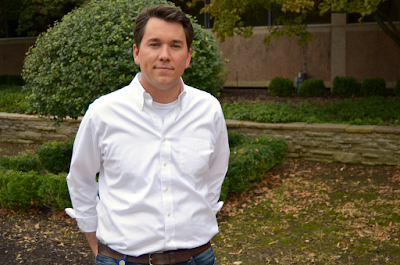Hey, guys! Danielle here, and I’m having a great summer interning at Kansas Soybean. I’m tackling all sorts of things, from learning about biodiesel to preparing an economic impact of Kansas agriculture report that we presented to our Representatives and Senators in Washington D.C.! It’s been an eye-opening experience in ways that I would never expect.
You see, I’ve always been a huge defender of conventional ag. I’m the first person to step up and say that GMO’s (genetically modified organisms) are not a bad thing, and list all the facts and figures to back it up. When people say they only eat organic foods, I was always the person to criticize them and bombard them with pro-GMO statements.
Obviously, telling them all the reasons I think GMO’s are good didn’t change their mind. It wasn’t until this internship that I finally realized that organic and non-GMO agriculture is still agriculture. When you’re in the grocery store, your goal is most likely to buy food to eat, whether you eat conventional foods or not. The goal of farmers everywhere is to feed people. You see how they line up?
I didn’t.
I got so caught up in defending the farmers who use technology to produce as much healthy, whole food as possible that I forgot about this shared goal. I think a lot of people forget about it as well. There’s so much negative advertising about conventional ag out there that misleads you, the consumer, that it’s easy to lose trust in the food system.
Infographic from findourcommonground.com
Part of my training in this internship was to learn how to talk to people who are confused about who to trust. Here’s where I started to realize that those who choose to stray away from GMO’s aren’t these people who want to ruin the lives of farmers; they’re simply people who want to make sure they are eating food that is healthy and safe. Doesn’t everyone want that?
The fact of the matter is, conventional food is just as whole and healthy as food that’s produced organically, and there are several scientific reports to back that up. Now that we all know that, let’s stop separating the two and pitting them against each other and work towards our shared goal: feeding hungry people. You’re hungry, so you eat. Farmer’s eat the same food that they provide and can’t afford to produce unsafe food.
Trust your food system, it aims to serve you. After all, without you, the consumer, farmers wouldn’t have a job. Avoid listening to all the negative hoopla about conventional agriculture that some companies use to attract your dollars, and work towards your goal: feeding yourself and feeding your family. It doesn’t matter if it’s conventional, non-GMO, or organic. It’s all food and we are all hungry!
Forks up,
Danielle





